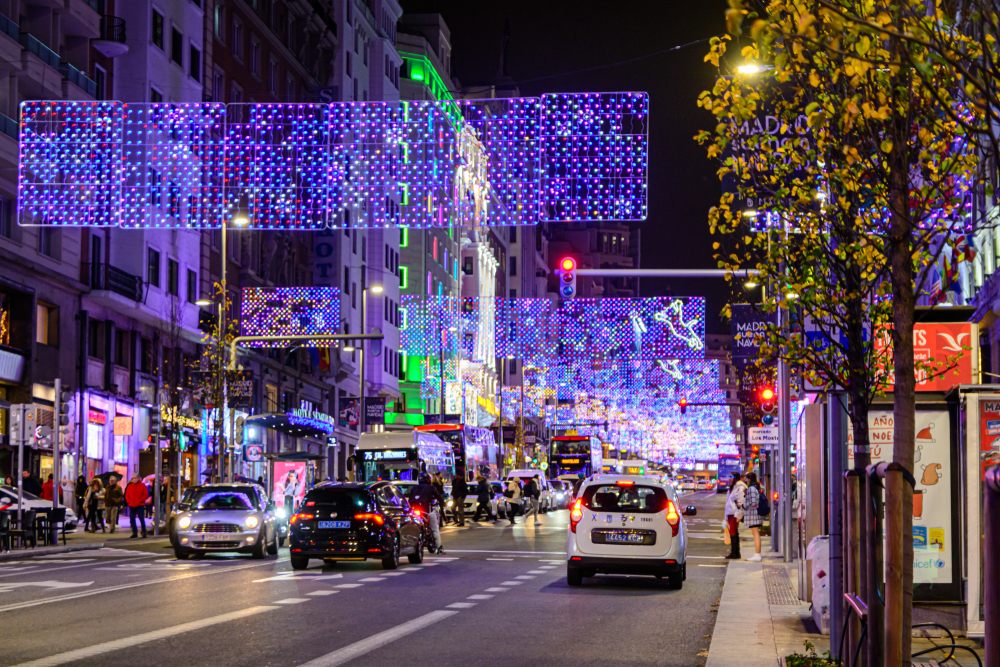Driving and Autos: Auto
Traffic in Madrid and Barcelona is fast paced and can be unnerving due to unfamiliar signs or motorbikes weaving between traffic lanes. Drivers should always obey the closest traffic light, as there are separate pedestrian lights in the city. Drivers should be alert when driving at night in urban areas, due to the possibility of encountering drivers or pedestrians under the influence of alcohol. Night driving in isolated rural areas can be dangerous because of farm animals and poorly marked roads. Rural traffic is generally heavier in July and August as well as during the Christmas and Easter seasons.
Traffic regulations in effect in Spain include the prohibition on the use of a mobile phone without a hands-free device while driving a car. There is a fine of 300 euros for violation of this regulation and loss of driving privileges. In addition, all drivers and passengers are required to carry a reflective vest and put it on if they need to stop on the roadside. A reflective triangle warning sign for a vehicle stopped on the side of the road is also mandatory. Those renting vehicles are encouraged to check with the rental company about traffic regulations and safety equipment. Visitors must obtain International Driving Permits prior to their arrival if they plan to drive in Spain as you are not allowed to drive on your national license. While rental car companies may rent a vehicle to you without the International Driving Permit, this is illegal and if pulled over for a traffic violation, your rental car may be detained and towed to the nearest impound lot. Pedestrians should use designated crossing areas when crossing streets and obey traffic lights.
One of the facets of Spanish traffic laws that foreigners find perplexing is traffic stops by the Spanish National Police or the Guardia Civil. Drivers do not receive traffic tickets and then pay the court via mail or in person, Spanish police authorities may levy fines on the spot and issue a receipt for the payment. This is done to ensure the traffic fine is paid by foreigners who rarely come back to Spain to pay the fine.
Rental cars can be found in urban areas, but visitors should purchase ample insurance. An international driving permit is required, although sometimes, a driver's license from your home country will suffice. Renters must be 21 and leave a deposit or pay by credit card. Hired cars with drivers are recommended for first-time visitors.
Source: US Department of State
Copyright © 1993—2024 World Trade Press. All rights reserved.

 Spain
Spain 